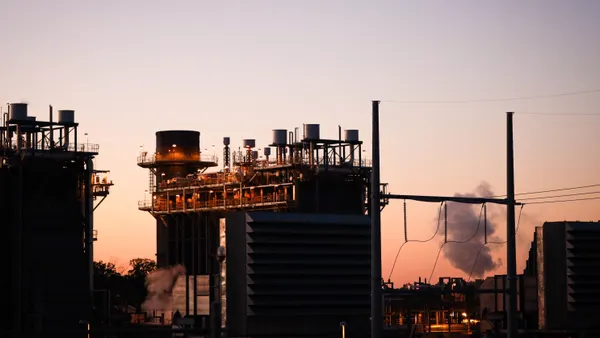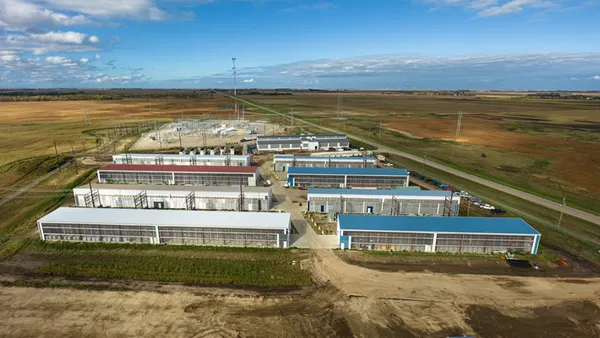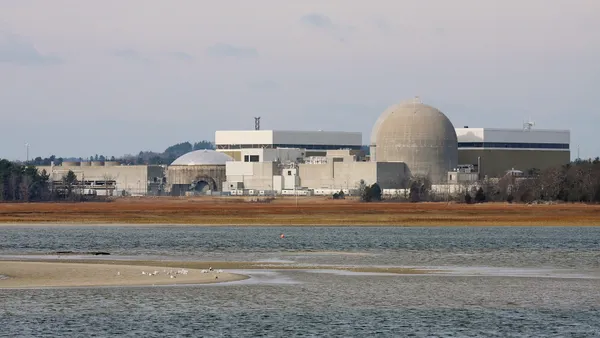Dive Brief:
- Fifteen states have filed a petition for an emergency stay with the U.S. Court of Appeals against the Environmental Protection Agency's (EPA) Clean Power Plan.
- The challenge argues that amendments made to the Clean Air Act in 1990 prevent the EPA from regulating an emissions source -- in this case, existing power plants -- under Section 111(d) if it is already regulated under Section 112, EnergyWire reports. The states also argue the EPA may only regulate emissions at the smokestack and not outside the "fence line."
- In response to the legal challenge, the EPA said the 1990 amendments to the Clean Air Act were intended to prevent the double regulation of pollutants, not emissions sources. The EPA said it is entitled to deference on interpretation.
Dive Insight:
This may be the first challenge to the EPA's Clean Power Plan, but it is unlikely to be the last as a drawn-out legal fight is expected by many.
The request for an emergency stay comes at an interesting time as the Federal Register of the U.S. government has yet to publish the final rule from the EPA. The Clean Air Act establishes that lawsuits can be filed within 60 days after publication of a rule in the Federal Register. While environmentalists are up in arms over what they see as a premature legal challenge to the rule, the 15-state coalition petitioned the court to act quickly. The states highlighted the fact that states must begin drafting compliance plans as soon as possible, while the EPA may not publish the final rule for months.
Opposition to the plan is especially present in coal-reliant red states. The coalition of states is led by West Virginia Attorney General Patrick Morrisey, and includes Alabama, Arkansas, Florida, Indiana, Kansas, Kentucky, Louisiana, Michigan, Nebraska, Ohio, Oklahoma, South Dakota, Wisconsin, and Wyoming. Notably, it does not include Alaska and South Carolina, which have often previously joined legal challenges to EPA emissions rules, according to reporting by EnergyWire. The Clean Power Plan does not establish emissions targets for Alaska or Hawaii, while the finalized draft of the plan was favorable to South Carolina since it counts under-construction nuclear plants for compliance purposes.
Meanwhile, the attorneys general of 15 other states (plus New York City and Washington, D.C.) have shot back at the opposition to the plan with a statement that blasted the challenge as "premature."
"Like West Virginia's challenge to the proposed rule, which was dismissed by the courts, this filing is premature," they said. "If and when requests to stay the final rule are timely filed, after the rule has been published in the Federal Register, our coalition will formally oppose them."














